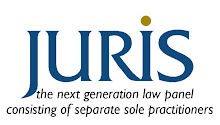Thursday, September 30, 2010
Small Business Jobs Act of 2010 Becomes Law
On Sept. 27, 2010, the Small Business Jobs Act of 2010 became law. The Act includes tax incentives for individuals and small businesses as well as some revenue raisers. The following is a brief summary of the key provisions of the Act.
Bonus Depreciation-The law extends the additional first year bonus depreciation deduction, which is equal to 50% of an asset's adjusted basis, to qualifying property acquired and placed in service in 2010. This provision is retroactive to January 1, 2010.
Sec. 179 Expensing-Under current law, eligible taxpayers may elect to expense up to $250,000 of the cost of qualifying Sec.179 property. This deduction begins to phase-out once the cost of qualifying property exceeds $800,000. For tax years beginning in 2010 and 2011, the new law increases the maximum amount a taxpayer may expense to $500,000 and raises the phase-out threshold to $2,000,000.
The new law also temporarily expands the definition of qualified Sec. 179 property to include qualified real property, which is defined as qualified leasehold improvement property (improvements to the interior portion of non-residential real property), qualified restaurant property and qualified retail improvement property. However, taxpayers are limited to expensing up to $250,000 of the total cost of this real property.
Start-Up Expenses-For tax years beginning in 2010, the amount of start-up expenses that a taxpayer may elect to deduct increases from $5,000 to $10,000.
S-Corp Built-In Gains-A C-corporation that converts to an S-corporation generally must hold any appreciated assets it has on the date of conversion for 10 years following the conversion, or must pay tax at 35% (highest corporate rate) on any built-in gains if the assets are disposed of earlier. Built-in gain is defined as the excess of the fair market value of the assets over their adjusted basis on the date of conversion. The American Recovery & Reinvestment Act of 2009 temporarily shortened the 10-year holding period to seven years for dispositions in tax years beginning in 2009 & 2010. The new law further shortens the holding period to five years for dispositions in any tax year beginning in 2011, if the fifth year in the recognition period precedes the tax year beginning in 2011.
Cell Phones-The new law removes cell phones and similar personal communication devices from their current classification as listed property, lifting the strict use substantiation requirements and the additional limits on depreciation deductions. In addition, the fair market value of the personal use of cell phones or similar devices provided to an employee predominantly for business purposes will be excluded from the employee's gross income.
Extended Carryback of the General Business Credit-The carryback period for general business credits of eligible small businesses is extended from one to five years by the new law. An eligible small business is a sole proprietorship, partnership or non-publicly traded corporation with average annual gross receipts for the prior three tax years of $50 million or less. An eligible small business credit may offset both the regular tax and AMT. This provision is effective for the taxpayer's first tax year beginning after Dec. 31, 2009.
Gain from the Sale of Qualified Small Business Stock-Under current law, individuals may exclude up to 75% of the gain from the sale of qualified small business stock held at least five years, subject to certain limitations. The 75% exclusion applies to stock acquired after Feb. 17, 2009 and before Jan. 1, 2011.
The new law raises the exclusion to 100% for gain on stock acquired after Sept. 27, 2010 and before Jan. 1, 2011. Also, under the new law, the excluded gain will not count as an AMT preference item but the five-year holding period continues to apply.
Self-Employment Tax-Under the new law, self-employed individuals may now claim a deduction for qualified health insurance costs (including long-term care) for themselves and their families in calculating their self-employment tax. This provision is temporary and only applies to 2010.
Rental Property Expense Payments-Individuals receiving rental income from real property and who make annual payments of $600 or more to a service provider, will now be required to file information returns (Form 1099) with the IRS and the service provider. However, exclusions may apply in the cases of hardship and where individuals only receive minimal amounts of rental income This reporting provision applies to payments made after Dec. 31, 2010.
Expiring "Bush Tax Cuts"-This new law does not address the various "Bush Tax Cuts", including individual tax rates and reduced capital gains/dividend rates, which will expire on Dec. 31, 2010. There is proposed legislation in Congress addressing these issues. We will keep you updated regarding the status of this legislation.
Subscribe to:
Posts (Atom)


